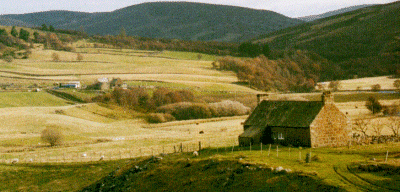 The James Hutton Institute
The James Hutton Institute
This page is no longer updated. The Macaulay Land Use Research Institute joined forces with SCRI on 1 April 2011 to create The James Hutton Institute.

Radical changes are taking place across Europe in the nature of support
structures for agriculture and rural development. The recent Cork conference
established the philosophy, at an EU level, of "integrated rural development",
that may become the model for future reform of support structures, i.e.
that policy structures aiming to stimulate the rural economy must recognise
that agriculture plays only a part, albeit a major one in a far wider range
of economic activities. This shift in emphasis, towards policies that regard
environmental sustainability to be a fundamental necessity, is likely to
have far-reaching effects on agricultural systems, particularly in the
agriculturally less-favoured areas. These disadvantaged regions - the mountains,
moorlands, wetlands and heaths and the rough pastures found in each of
these landscapes - represent some 30 % of the farmed area of Europe. Livestock
rearing is commonly the major agricultural sector in these areas, and it
is being increasingly recognised that traditional husbandry methods have
played an essential role in creating and maintaining the characteristic
habitats and landscapes, that are, on the one hand, so valued by all countryside
users, and on the other, so threatened by intensive agriculture practices.
Future systems must be compatible with positive environmental management,
as well as returning an adequate income to farmers, a demand that is leading
to an increasing number of farmers engaging in some form of processing
or speciality marketing to add value to their products, possibly in co-operation
with other local businesses, such as restaurants and delicatessens.
This drive to integration of rural development initiatives opens up
new challenges for research. There is increasing need for collaborative,
interdisciplinary work which will draw together existing knowledge and
new technologies. The LSIRD network was established last year to bring
together leading European researchers to share ideas, and develop new co-ordinated
research programmes to address these issues. This conference is the first
in Europe that will include experts in production systems, policy and economic
research, and environmental management. The conference will point to new
opportunities for synergy between the disciplines, and form a conceptual
basis for the future development of the LSIRD network.